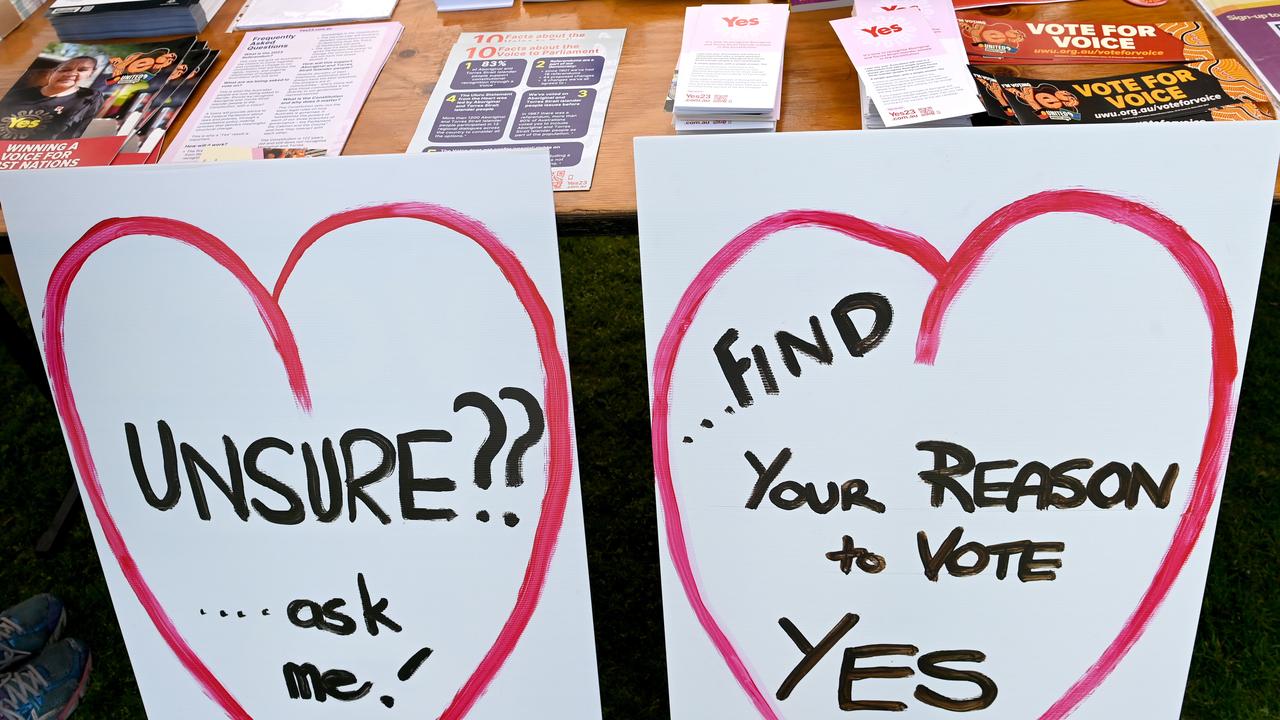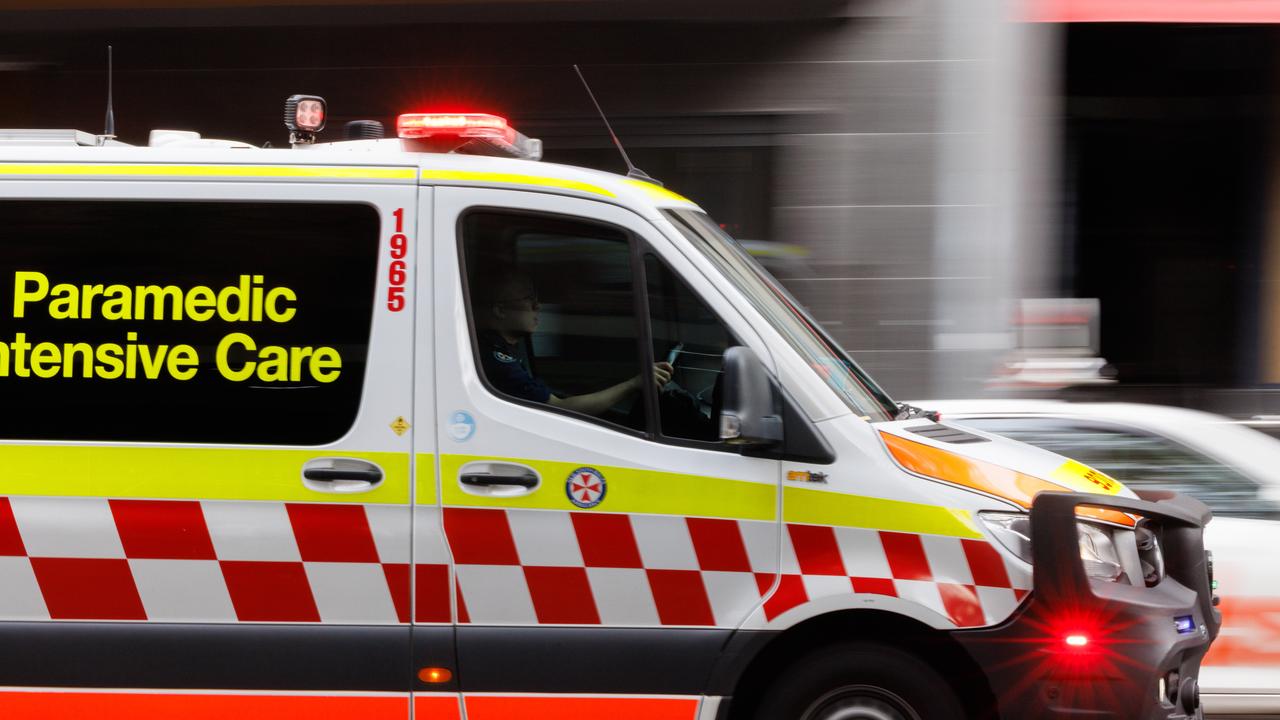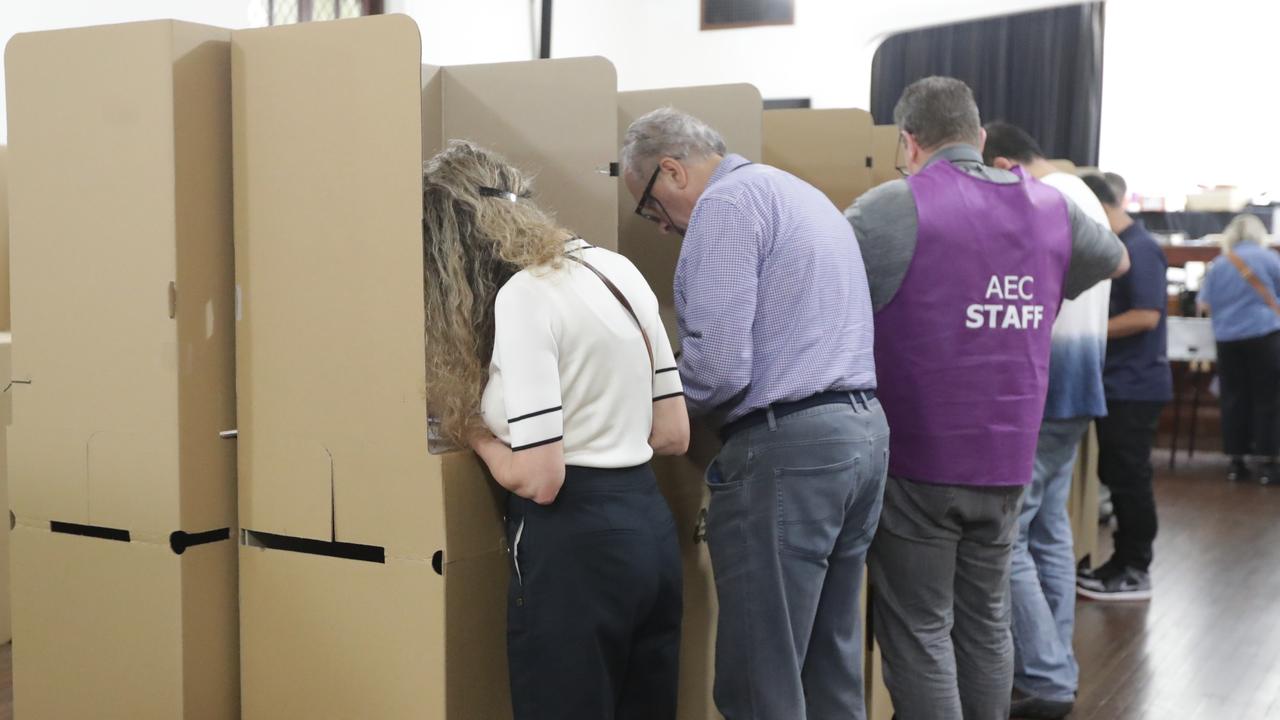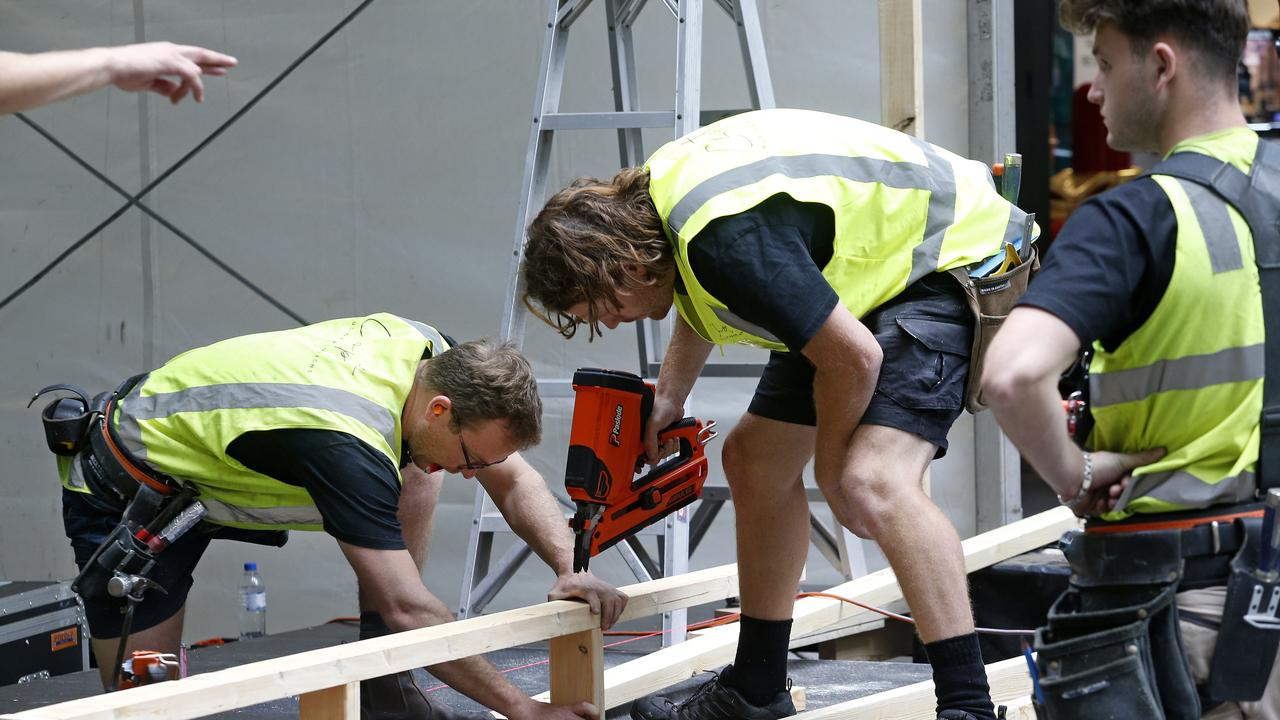Voice referendum called before polls close in WA
Pollsters have called the Voice referendum for the No vote before the final polling booths closed across the country.
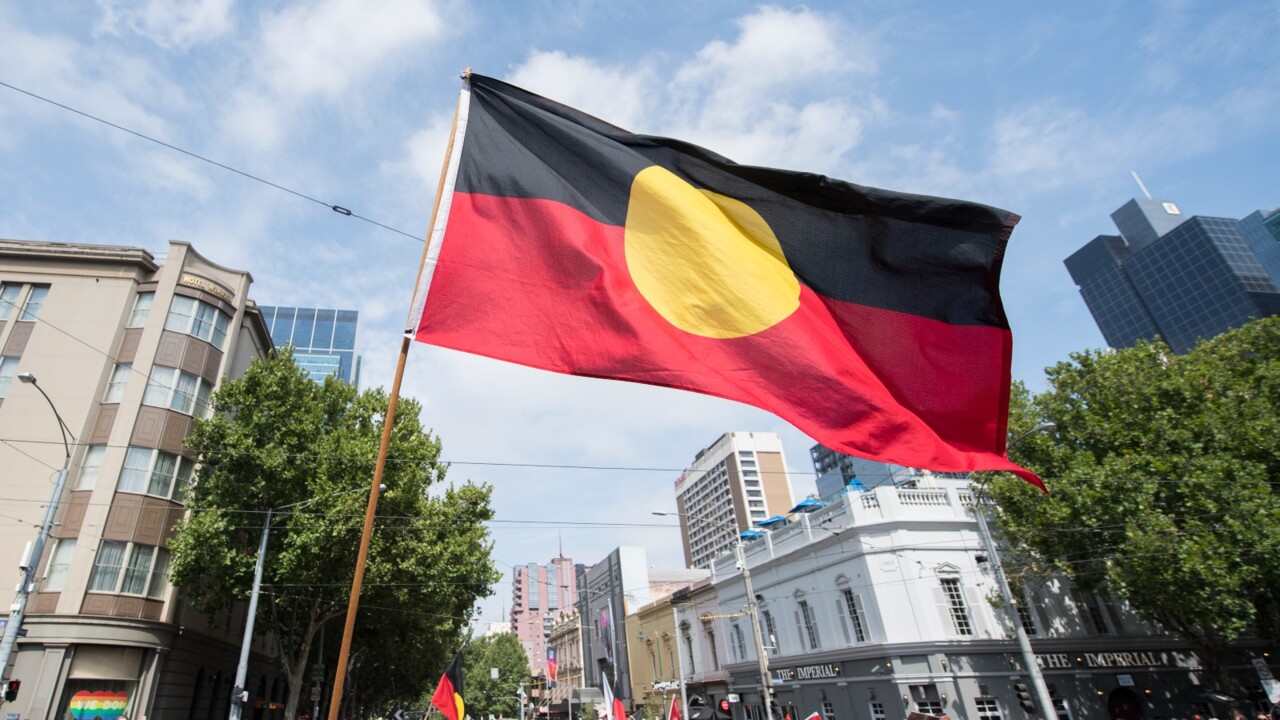
The Voice referendum has been defeated before polling booths even closed in Western Australia.
Sky News announced the result at about 7.30pm AEDT, after calling South Australia for the No vote. The polls in WA close at 6pm local time, 9pm AEDT.
In numbers from the Australian Electoral Commission, about 53 per cent of polling places have been counted, with 54 per cent of booths reporting a No vote.
While counting has yet to begin in Western Australia, as it stands none of the five remaining states have reported a Yes majority.
Although the final Newspoll indicated a three-point swing towards Yes, it was unlikely to be enough to stave off defeat, with a clear majority – 57 per cent of surveyed voters – told pollsters they intend to vote No.
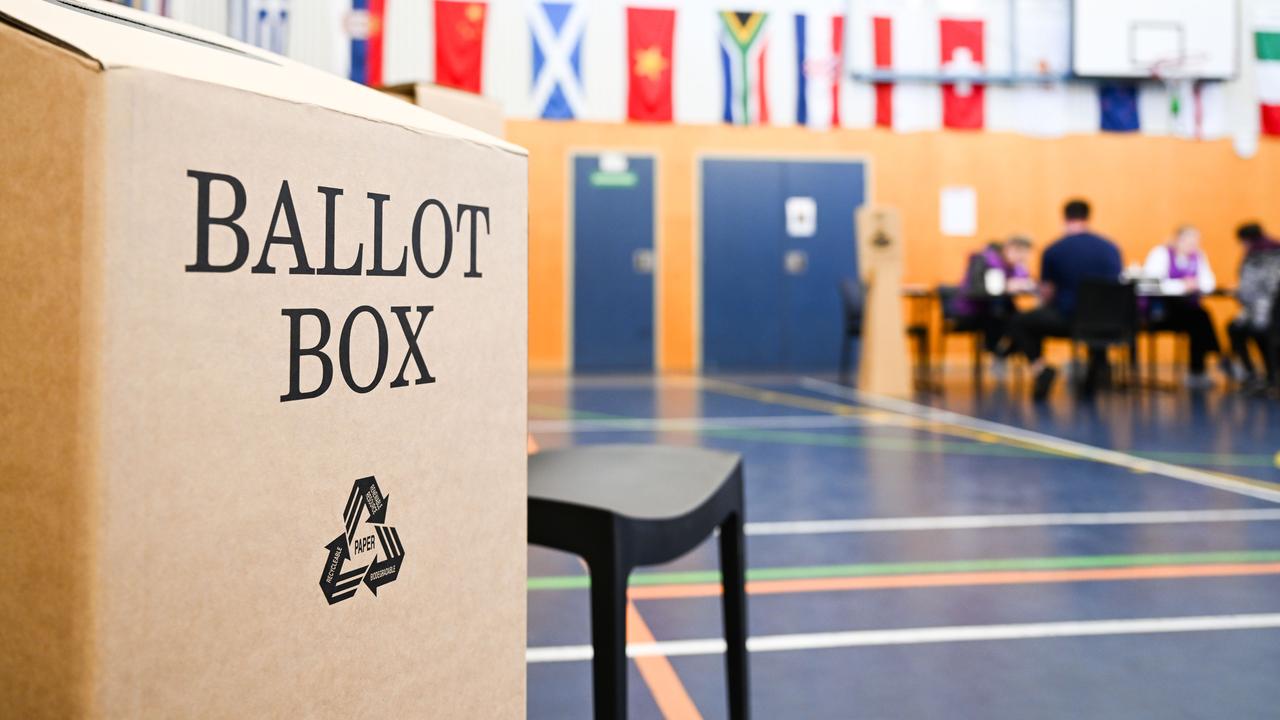
An exit poll in South Australia conducted on referendum day also points to a No win.
A total of 115 voters across the Adelaide electorate of Boothby were asked how they voted as they left four polling booths. 58 registered a No vote while 56 went for Yes.
The tight numbers deliver a 50.8 per cent No majority versus 49.2 per cent for Yes.
The tight numbers spell trouble for Yes because Boothby is a Labor electorate, currently represented by Louise-Miller Frost.
The Yes campaign needs to run up its vote totals in Labor territory to balance out conservative electorates that lean more heavily towards No.
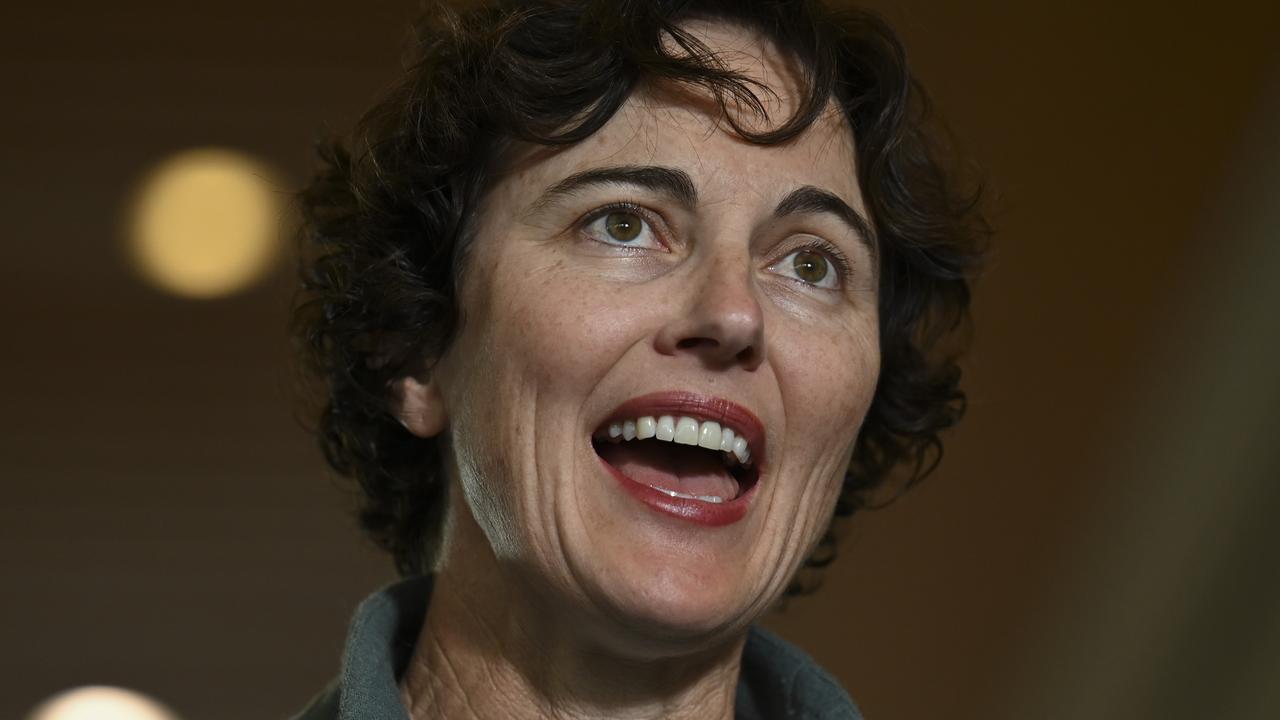
Independent MP Kate Chaney said she was optimistic that a Yes result would defy the polls.
Speaking from her electorate in Western Australia, the federal MP he said voting no means there would be “no changes” to outcomes for Indigenous Australians.
“There is definitely a sense of positivity here and people want to see change,” Ms Chaney said.
Indigenous Australians Minister Linda Burney said she had “butterflies” when she voted on Saturday morning, as she made a final urge to one in five Aussies who are still undecided to vote Yes.
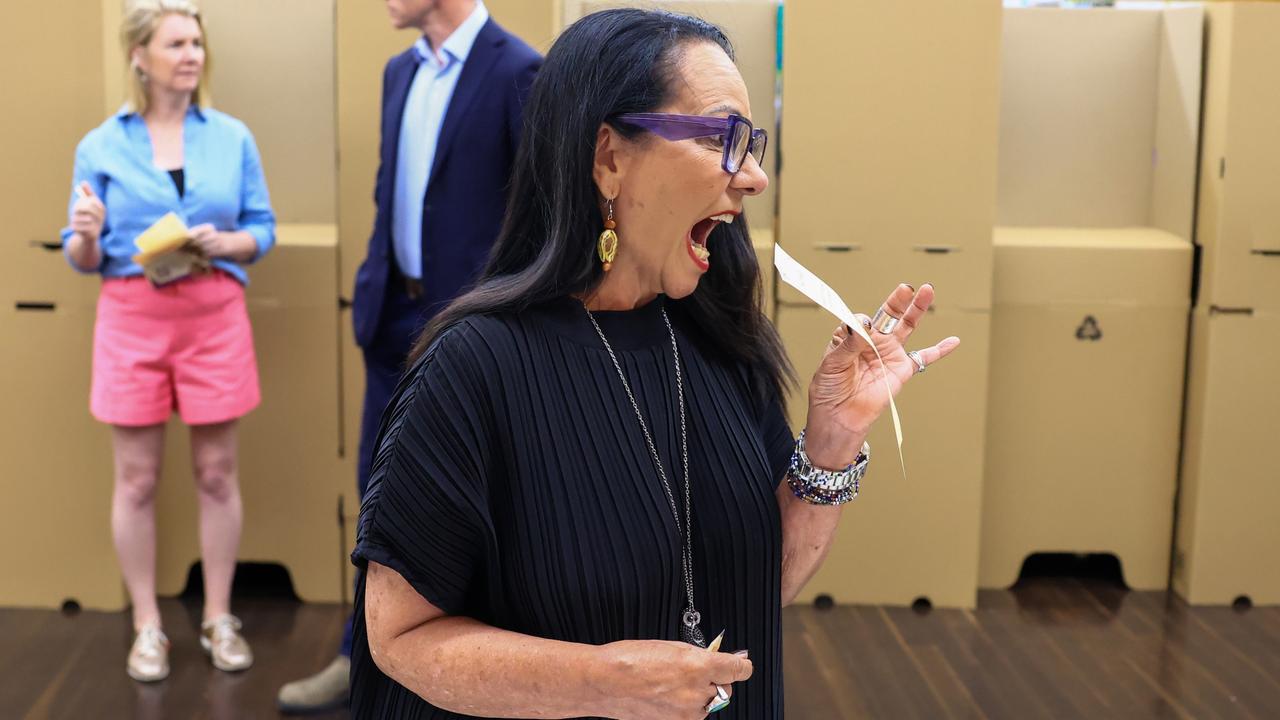
“Today is a truly historic day in this country,” Ms Burney said.
“There are one in five voters that are still to make up my own mind, and they will vote today, and I want those people to vote yes.”
For Adelaide voter Helen Carpentieri, 60, uncertainty surrounding how the Voice would work pushed her to a No vote.
“I don’t think much has been explained,” she said.
“We don’t know what it would do.”
Poll history shows a stunning collapse in support:
The campaign for constitutionally enshrining a Voice to Parliament faces the near-impossible task of pulling off a miracle and clawing back the support of Australians it once took for granted.
As pollsters project a loss on October 14 more significant than that seen at the republic referendum, key figureheads, volunteers, and the Prime Minister have maintained their confidence that the Yes campaign still “has the arguments and the commitment” to convince Australians to vote Yes.
In four weeks, Australians will head to the polls to vote in the first referendum since 1999. It will be the first time anyone currently under the age of 42 will have a say in whether or not to change the constitution.
It’s that age group that had been the most likely to vote Yes, but just as the polls show national support for the Voice deteriorating, so too did it in all of the Yes campaign’s key demographics.
In the February Newspoll, support among 18-34 year olds for the Yes vote was at 70 per cent, but by September that had fallen to 55 per cent.
Support has also fallen among people with university degrees and people who speak another language at home – other demographics considered Yes strongholds.
Nationally, the polling average for Yes has fallen below 45 per cent; and pollsters say if support for the referendum continues to decline at the rate its going, come October 14 Yes is on track for a worse result than in the republic referendum.
Polling analyst Simon Jackman in September projected the poll average for Yes would be just 38.4 per cent on referendum day – with a five per cent margin of error and other caveats. The Yes vote in the 1999 republic referendum garnered 45.1 per cent of the national vote.
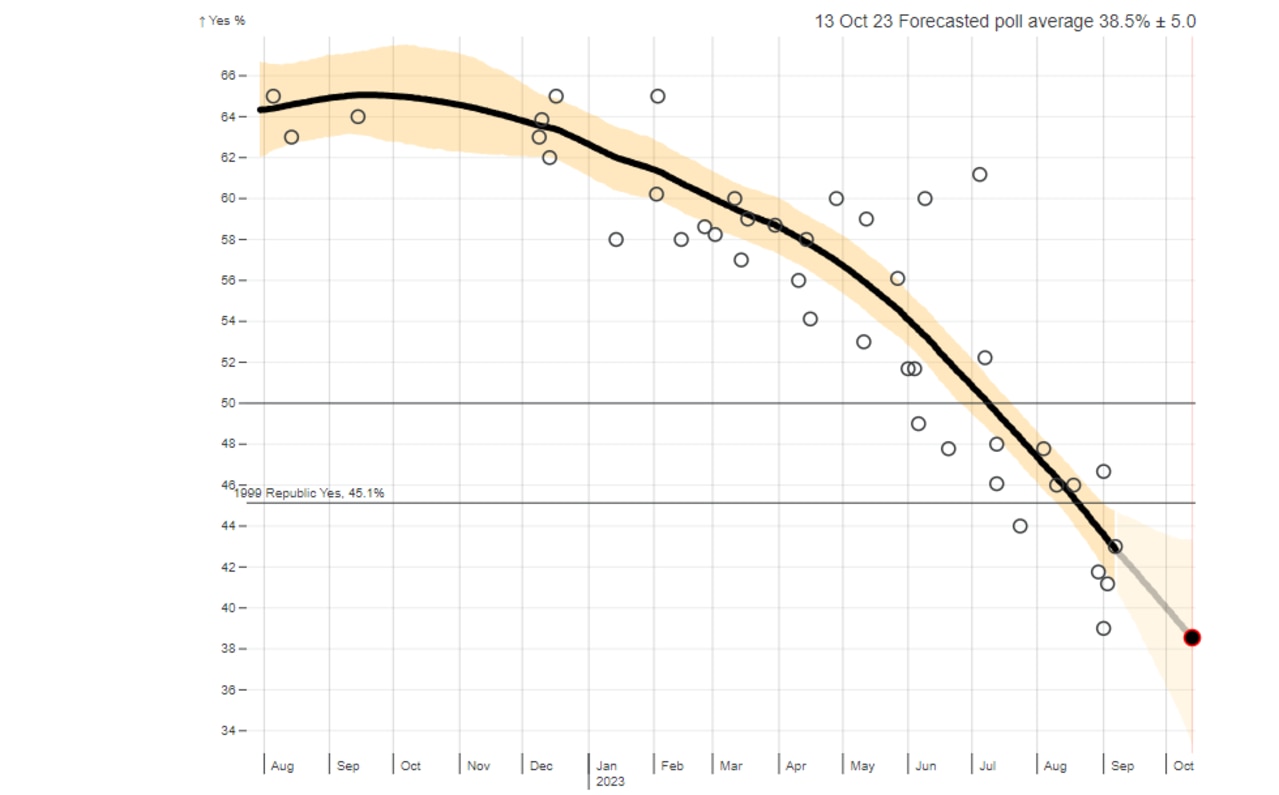
Redbridge director Kos Samaras said given the double majority requirement of referendums, the Yes vote will need to reach 52.5 per cent in order to succeed.
With the current polling average about 42.4 per cent, he said even if the margin of error were doubled, there was still not a visible path to victory for the Yes vote.
He said while that task seemed extremely difficult at present, it was “not impossible”, because ultimately there were still so many unengaged voters.
“There could be a wild swing in support for the Yes campaign, but what we’re seeing is that people are just not animated,” he said.
“They’re more concerned about other issues than the Voice referendum.”
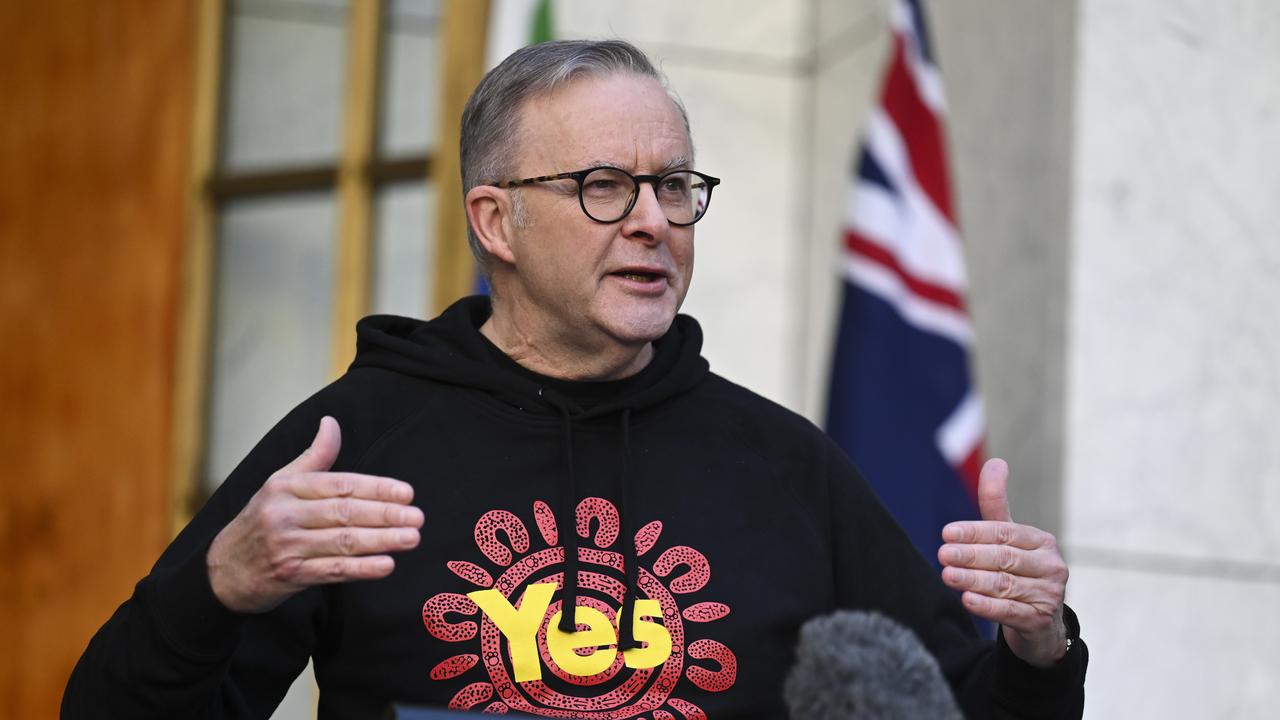
Anthony Albanese has for months tried to maintain a message of optimism and hope, but has warned of the risk of a No vote.
“This is a hand, outstretched, asking for the hand to be joined. That’s all it is. Who in Australia, when a hand goes out, dismisses it and doesn’t shake? That’s what we’re asking of Australians,” he said.
“This is a chance to get this done on October 14.”
Asked whether he had confidence in the campaign to pull off a “miracle”, Mr Albanese said he had belief in Australians.
“I’m confident that every Australian will take up the opportunity to vote Yes,” he said.
“To vote Yes for recognition, to vote Yes for walking together on the journey of reconciliation.
“ … I sincerely hope that Australians vote yes.”
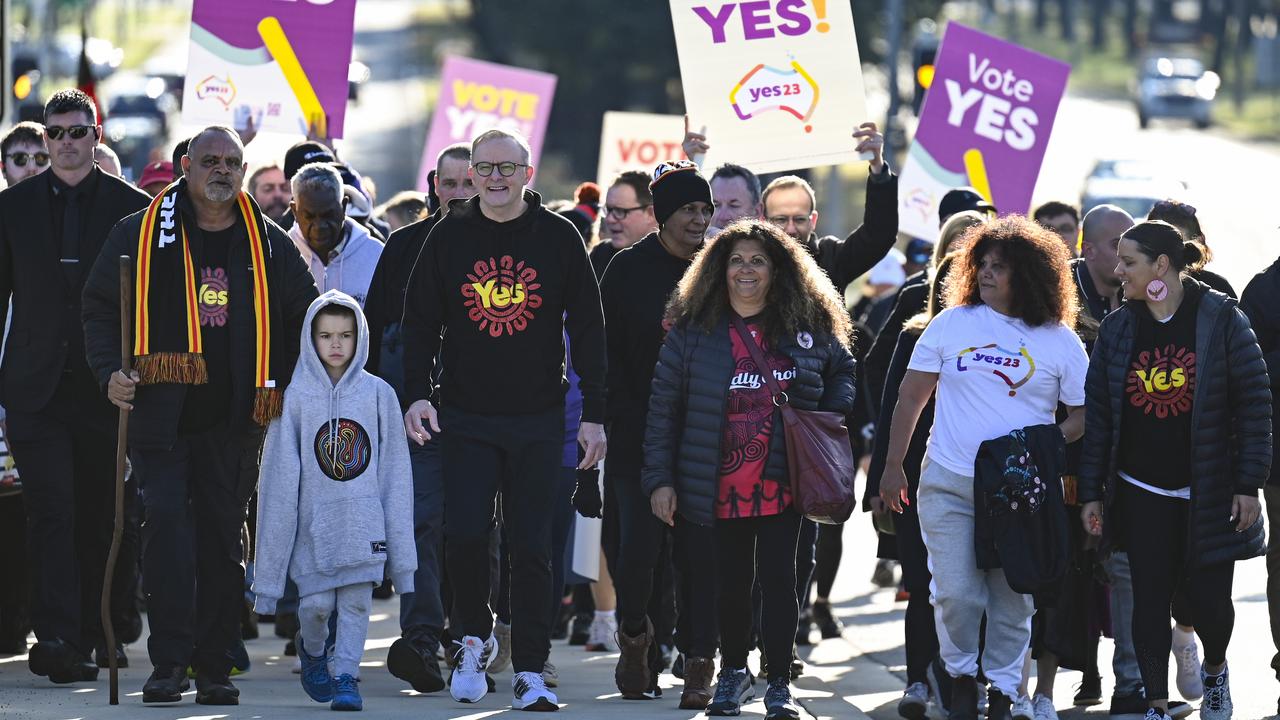
Mr Albanese conceded referendums are “hard to win”, but said he was confident people would “focus on what the question is”.
But Mr Samaras said the Yes campaign needed to urgently switch gears if it were to seriously consider claiming a win.
“There’s been a drastic slide in support in the outer-metropolitan areas. The referendum was always going to be decided there,” he said.
“The Voice pitches well to the cities, but the campaign hasn’t done enough to reach (the fringes).”
